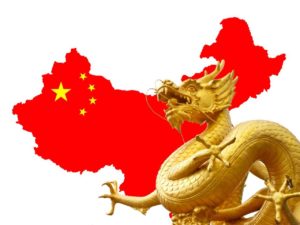A New Study with KCG Involvement on Trade Impact of Floods in China

Floods can impact international trade through a variety of different channels. They can destroy crucial transport infrastructure such as roads or ports, directly reducing the capacity of a firm to export. The export capacity of a firm may also be affected by the destruction of public and private assets which are crucial for production. Established trading relationships with customers may be severed by negative flooding shocks, and supply chains for intermediate inputs and services can be affected.
Most research in this field has examined this topic using annual data. Shocks identified directly from annual data are, however, hard to interpret and will likely underestimate the size of the adjustment process in trade patterns of firms after a disaster event. To learn more about how natural disasters can impact international trade, conducting micro-level analyses is essential. There are two main challenges here. First, it is important to consider the complex local nature of floods in the corresponding economic modelling. Second, it is important to precisely localise the economic agents of interest like firms and match them to the flood events.
Focusing on China, a large country frequently affected by floods in various scales and a leading export nation in the world economy, Prof. Dr. Alexander Sandkamp (KCG, Kiel Institute and Kiel University) and his co-author, Dr. Jasmin Katrin Gröschl (ifo Institute) analyse in their new study the trade impact of floods in which they are able to best deal with both of the key methodological challenges mentioned above.
For the analysis, they merge monthly Chinese plant-level trade data with geoinformation on flood data to identify the impact of exogenous flood events both on the intensive and extensive margins of plant-level trade. For the years 2000-2006, they find that the effects of flooding events are relatively short-lived. While the effect on the number of exporting plants is persistent for at least 12 months, the effect on the distribution of exporter market scope, on the average exporter scale or the sales distribution of firms vanish within a year. These effects are driven by production facilities, with wholesalers being barely affected. Additionally, their analysis finds that privately owned plants are hit harder than state-owned enterprises. The former produce continuously fewer products, while their export value and average sales per product recover (potentially due to higher value products). Last but not least, they provide evidence showing that plants that produce within an industry supported by China’s five-year plans perform better than those that do not.
The study “Gröschl, J.K. and Sandkamp, A. (2023), Flood Events and Plant Level Trade: A Chinese Experience, ifo Working paper No. 389” is available here.
Contact:
Prof. Dr. Alexander Sandkamp, alexsander.sandkamp@ifw-kiel.de; +49(0)431-8814-225



 KCG Projects
KCG Projects


